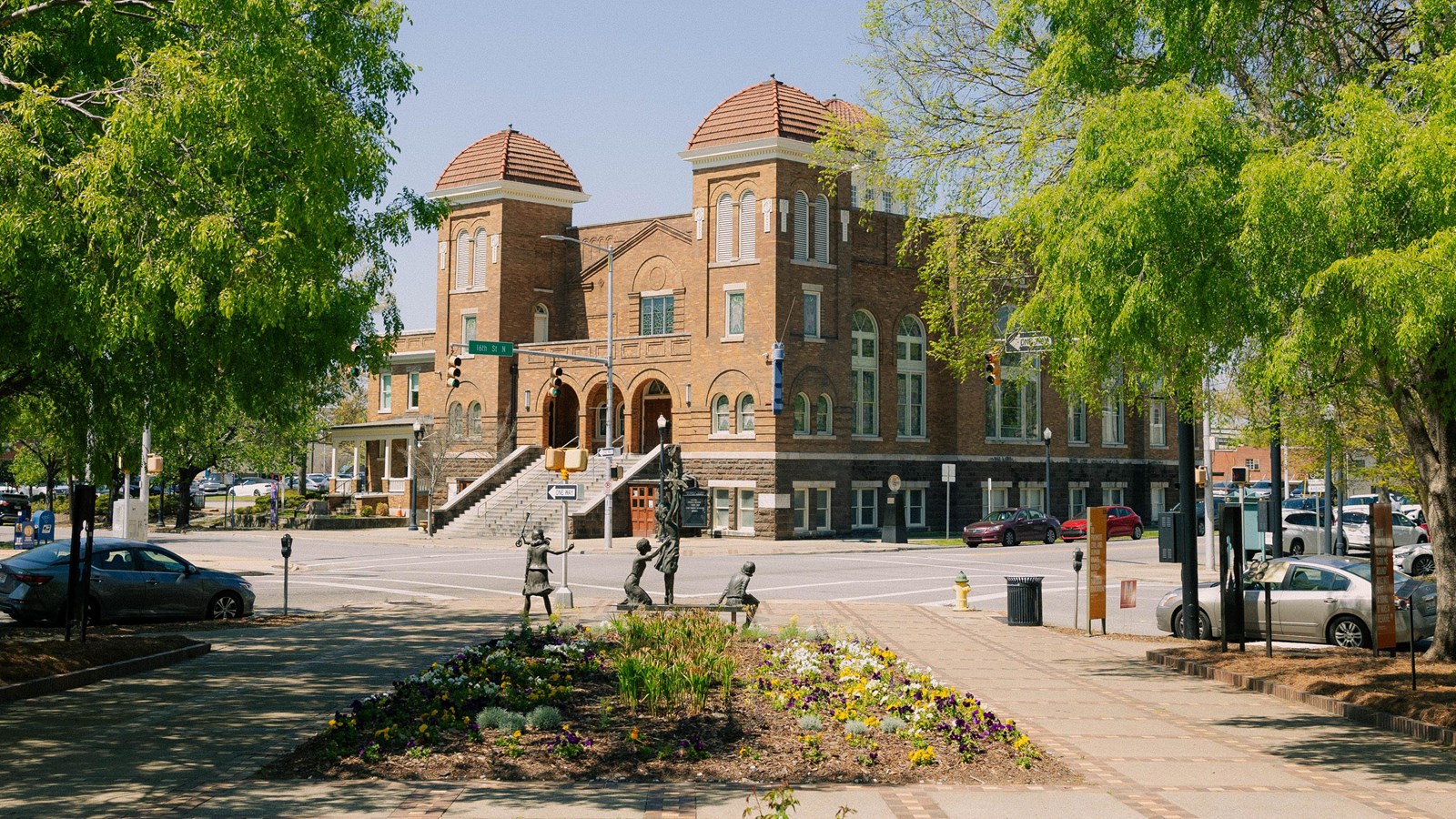Last updated: May 31, 2025
Place
Sixteenth Street Baptist Church

NPS Photo/ Jacob Garrett
Accessible Sites, Cellular Signal, Historical/Interpretive Information/Exhibits, Restroom
On Sunday morning, September 15, 1963, the Ku Klux Klan bombed the Sixteenth Street Baptist Church in Birmingham, Alabama, killing four girls. This murderous act shocked the nation and galvanized the civil rights movement.
Addie Mae Collins, Denise McNair, Carole Robertson, and Cynthia Wesley were dressed in their "Youth Sunday" best, ready to lead the 11:00 adult service at the church, which since its construction in 1911 had served as a pillar for Birmingham's African American community. Only a few minutes before the explosion, they had been together in the basement women's room, excitedly talking about their first days at school. The bombing came without warning.
Following the tragic event, white strangers visited the grieving families to express their sorrow. At the funeral for three of the girls (one family preferred a separate, private funeral), Dr. Martin Luther King, Jr., spoke about life being "as hard as crucible steel." More than 8,000 mourners, including 800 clergymen of both races, attended the service. No city officials braved the crowds to attend.
News stories circulated about symbolic incidents that occurred at the time of the bombing. For example, the image of Jesus' face was knocked cleanly out of the only surviving stained-glass window in the church's East wall, and the church clock stopped at exactly 10:22 a.m.
The deaths of the children followed by the loss of President Kennedy two months later gave birth to a tide of grief and anger - a surge of emotional momentum that helped ensure the passage of the 1964 Civil Rights Act.
In January 2017, it was named a part of the Birmingham Civil Rights National Monument by President Barack Obama. In October 2019 the Sixteenth Street Baptist Church was chosen for inclusion in the African American Civil Rights Network for its enduring connection to the black freedom struggle.
Today, visitors can walk in the basement where the 4 little girls gathered before the bomb detonated. Now, exhibits cover the walls, providing information on the history of the church, Jim Crow, segregation in Birmingham, and the lives of the children that were so suddenly and horrifically torn away. Sitting in the pews, visitors can appreciate the majesty of the enormous pipe organ. At the back of the church is the Wales Window - a gift from the country of Wales to the church after the terrorist attack on September 15, 1963. The stained glass image depicts a Black man with his arms spread wide, one hand pushing away, symbolizing the Black community's efforts to stop oppression and injustice. The other hand is palm-up and open, symbolizing the unfathomable ability to forgive in the face of so much hate. Outside the building, a commemorative plaque delineates the exact location the dynamite detonated all those years ago. Docents lead visitors on guided tours to the many spots of significance in and around the church. Pending completion, visitors soon will be able to enter a new, state-of-the-art museum exhibit in the former parsonage.
The African American Civil Rights Network (AACRN) recognizes the civil rights movement in the United States and the sacrifices made by those who fought against discrimination and segregation. Created by the African American Civil Rights Act of 2017, and coordinated by the National Park Service, the Network tells the stories of the people, places, and events of the U.S. civil rights movement through a collection of public and private elements.
A project through the African American Civil Rights Grant Program, which works to document, interpret, and preserve the sites and stories related to the African American struggle to gain equal rights, funded rehabilitation work at the 16th Street Baptist Church in 2018.
